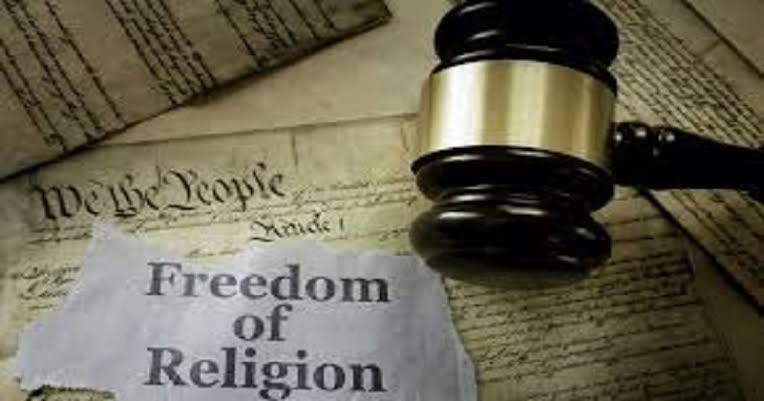
Hobby Lobby, the Court struck down a law that required for-profit corporations to provide certain contraceptives as part of their healthcare packages for their employees. The “Hobby Lobby” case is a more recent example of the Court’s foray into the interaction between religion and the Constitution.
Amendment dom of religion license#
The Court ruled that a local ordinance that required a license for religious solicitation violated the Free Exercise Clause. Connecticut, Jehovah’s Witnesses were arrested for proselyting in Connecticut. However, in a number of decisions, the Supreme Court held that because of the Fourteenth Amendment, the protections of religious freedom in the First Amendment are enforceable against state and local governments.
Amendment dom of religion how to#
Many of the framers of the Constitution were staunch supporters of a federalist system in which each state would have the power to decide for itself how to approach religion. The Bill of Rights only expressly limits the federal government, so until the adoption of the Fourteenth Amendment, states were not constitutionally required to adhere to the protections of the Establishment Clause and the Free Exercise Clause. Some commentators have suggested that the Free Exercise Clause is contradictory with the Establishment Clause because by protecting certain religious practices that the government would otherwise like to prohibit, the Constitution takes stance in favor of and not neutral to religion. In the last 30 years especially, the Court has generally adopted a more restrictive view of the protections of the Free Exercise Clause. The Supreme Court has interpreted limits to the Free Exercise Clause and allowed the government to legislate against certain religious practices, such as bigamy and peyote use.

The clause protects individuals from laws that would expressly inhibit them from engaging in religious practices. The Free Exercise Clause protects an individual's right not only to believe what he or she would like but also to practice it. This second clause is called the Free Exercise Clause. The second clause of the First Amendment that deals with religion immediately follows the Establishment Clause: "Congress shall make no law respecting an establishment of religion, or prohibiting the exercise thereof." Where the first clause prohibits Congress from adopting any particular religion, the second clause prohibits Congress from interfering with an individual's exercise of religion. In that case, the Court ruled that a town hall meeting that began with prayers, predominantly given by members of different denominations of Christianity, was not a violation of the Establishment Clause, in part because legislative prayers are for the legislators and not for the public. For instance, the Court has allowed government funding to go to private religious schools and prayers to begin certain legislative meetings, as in Town of Greece v. However, the Supreme Court has tolerated a certain degree of government involvement in religion. More broadly, the phrase functions as a way of assuring that the federal government will not adopt any stance in favor of or against any religion. In the first instance, the Establishment Clause states that "Congress shall make no law respecting an establishment of religion." In the strictest reading, the Establishment Clause proscribes any adoption of an official religion by the federal government. The First Amendment contains two clauses that prescribe the government's relationship with religion. The second instance is in the First Amendment of the Bill of Rights. The first instance, in Article VI, is a proscription of any religious tests as a requisite qualification for public service. Thus, the Constitution maintains a general silence on the subject save for two instances. They believed that any governmental intervention in the religious affairs of citizens would necessarily infringe on their religious freedom.

The principle of separating church from state was integral to the framers’ understanding of religious freedom. The members of the Constitutional Convention, the group charged with authoring the Constitution, believed that the government should have no power to influence its citizens toward or away from a religion. Because of their belief in a separation of church and state, the framers of the Constitution favored a neutral posture toward religion.


 0 kommentar(er)
0 kommentar(er)
